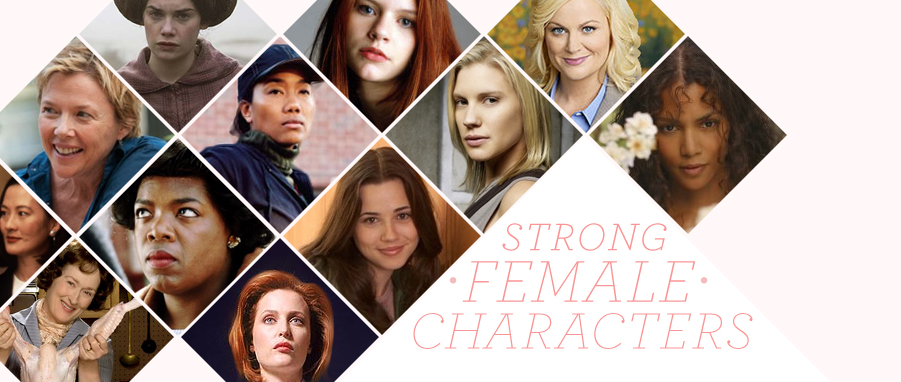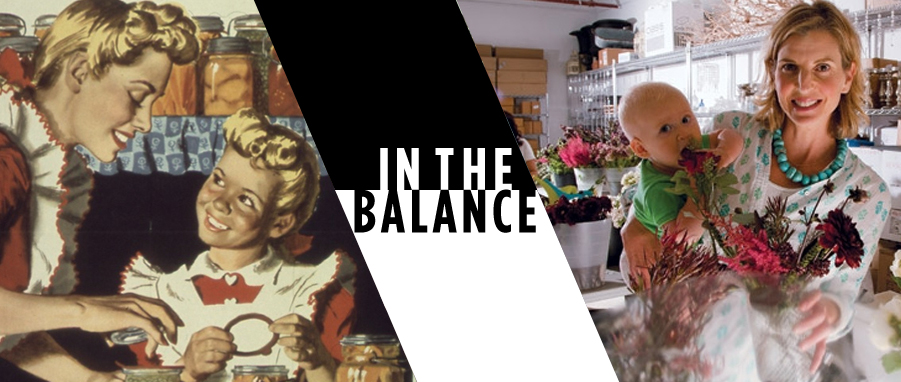Strong female characters—or even mediocre female characters—can be in short supply in Hollywood, on both the big and small screens. It’s something I’ve become more aware of as the years go by, and it's a bit dismaying. Recently, I’ve discovered that one of the best quick-view gauges by which to determine whether a film has adequate female representation is the Bechdel Test. Named for comic strip author Alison Bechdel, who with a friend devised the criteria back in the 1980s, the test has three really simple steps. First, are there two (named) female characters? Second, do they ever have a conversation with each other? Third, is their conversation about something other than a male character?
If the answer to these three questions is yes, it passes the test.
These three incredibly simple rules, amazingly, ruled out almost every single DVD on my shelf, including some of my favorite films. Eternal Sunshine of the Spotless Mind? Nope. The Lord of the Rings? Not even close. (And that is in spite of the fact that they proportionally really blew up Arwen’s role from Tolkien’s original text.) Ferris Bueller’s Day Off? No, because apparently Jeannie and her mom only talk about her troublesome brother Ferris.
It wasn't surprising to me that some of my more man-centric favorite films---The Good, the Bad & the Ugly, In Bruges, The Lord of the Rings---wouldn't pass. But even films with seemingly more positive and more frequent portrayals of women missed the mark in that they were still, ultimately, male-centric.
Blockbusters like the Batman series and The Avengers fail with flying colors (though there’s some dispute over whether The Dark Knight passes, as there is a scene where a female detective is forced at gunpoint to call another female character. Kind of a sad excuse for passing, if so). The only sure bet that a film will pass seemed to me to be if the lead character was a woman—but even that was called into question when I looked up The Little Mermaid (come on, Disney! Not surprising, I guess, when the character's sole motivation is marrying her prince).
The conclusion is that, despite all of the forward progress we’ve made, there are still some substantial holes in our cultural fabric when it comes to diverse and frequent media representations of women. Ensemble casts tend to be “rounded out” with one major female character; all-male leads segment off the female characters into the roles of wife, co-worker, mother, where they all exist only in relation to the male(s); or, as the test rightly points out, when the women do convene they end up talking about that male character.
Does your favorite movie pass the Bechdel test? Is it important to you that it does? Obviously it’s not necessary for every film, but it would be nice to see films outside of certain genres, or outside of the “chick flick” realm of films targeted directly at women, where two female characters talk to each other about things that concern them besides men.


















 Before leaving to Myanmar, I had read so much online about it. Mostly, I was concerned about traveling safely in a country where traditions are so different and the political situation quite unstable. We all have heard a lot about Myanmar lately, and not all of it is good news. It seems that Myanmar is heading toward a more democratic government, but still in the outer provinces, those areas that are out of reach for tourists and seem so forgotten, ethnic fighting is happening. While gathering handful information, I learned that Myanmar is quite a bit more conservative than other countries in Southeast Asia, which means I packed t-shirts with leaves and long pants for those days. Knowing that the medical system and the pharmacies are still underdeveloped, I stocked up all the medicines I thought I may need. I learned that banks don’t exist, not to mention ATMs, and that dollars should not be folded or crumpled, or they will not get accepted anywhere. Last but not least, a friend of mine told me that during a trip over there a few years ago he tried to discuss about politics with his Myanmar guide, but there was no way the guy would even start to express his opinion about anything, and he mainly remained silent and looked embarrassed. Therefore, I decided it was wiser not to get involved in a political discussion in public.
These tips being absorbed, I considered myself quite prepared to live a nice trip in a mostly mysterious country.
Before leaving to Myanmar, I had read so much online about it. Mostly, I was concerned about traveling safely in a country where traditions are so different and the political situation quite unstable. We all have heard a lot about Myanmar lately, and not all of it is good news. It seems that Myanmar is heading toward a more democratic government, but still in the outer provinces, those areas that are out of reach for tourists and seem so forgotten, ethnic fighting is happening. While gathering handful information, I learned that Myanmar is quite a bit more conservative than other countries in Southeast Asia, which means I packed t-shirts with leaves and long pants for those days. Knowing that the medical system and the pharmacies are still underdeveloped, I stocked up all the medicines I thought I may need. I learned that banks don’t exist, not to mention ATMs, and that dollars should not be folded or crumpled, or they will not get accepted anywhere. Last but not least, a friend of mine told me that during a trip over there a few years ago he tried to discuss about politics with his Myanmar guide, but there was no way the guy would even start to express his opinion about anything, and he mainly remained silent and looked embarrassed. Therefore, I decided it was wiser not to get involved in a political discussion in public.
These tips being absorbed, I considered myself quite prepared to live a nice trip in a mostly mysterious country.



 I’m not sure what the answer to my questions might be, but I’m sure of one thing–Myanmar is a country that can change you deeply. I changed over there. Like a snake, I left my skin behind, and soon was ready to get warmer under new sun rays, free from the past, eager for a new future and willing to learn how to make a day out of a single smile.
I’m not sure what the answer to my questions might be, but I’m sure of one thing–Myanmar is a country that can change you deeply. I changed over there. Like a snake, I left my skin behind, and soon was ready to get warmer under new sun rays, free from the past, eager for a new future and willing to learn how to make a day out of a single smile.



